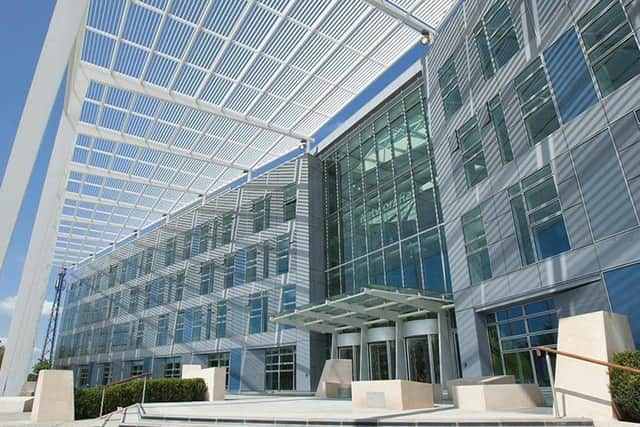Network Rail finds ingenious way to power its offices in Milton Keynes - using leftover food from workers' lunches
and live on Freeview channel 276
MK’s biggest company, Network Rail, has come up with an ingenious way to deal with leftovers from its staff canteen.
The company employs almost 3,000 people at its offices in Elder Gate at Central Milton Keynes and it has a range of on-site restaurants to ensure they are all well fed.
Advertisement
Hide AdAdvertisement
Hide AdBut the massive undertaking means a massive pile of food waste. In fact, the company has been paying for 120 tonnes of such waste to be taken away every year.


"Acknowledging this was inefficient, from both an environmental and financial perspective, they were determined to do something about it,” said a spokesman for Mitie, a facilities management and professional services company employed by Network Rail to tackle the problem.
Working in partnership with Mitie’s waste management team, Network Rail installed a food waste digester on site. It uses a unique blend of microbes to convert food waste into valuable biomass in just 12 hours.
"Since its installation, the digester has reduced the amount of food waste that needs to be collected by 80% – equivalent to a massive 96 tonnes per year,” said the spokesman.
Advertisement
Hide AdAdvertisement
Hide Ad"It effectively produces ‘free’ energy for the building and has helped reduce the company’s carbon footprint. Also, the number of food bins collected per week has reduced significantly, from 15 to three, which has reduced the cost of food waste collection.”
Mitie is an expert in helping organisations, in the public and private sectors, reduce the amount of food waste they generate and send to landfill. It uses its experience and access to technology to create a more cost-effective and sustainable approach to food in different organisations.
Network Rail operator, owns, operates and develops Britain’s railway infrastructure. This includes 20,000 miles of track, 30,000 bridges, tunnels and viaducts and thousands of signals and level crossings.
The company also manages some of the UK’s largest train stations and prides itself on its environmentally-friendly policies.
Advertisement
Hide AdAdvertisement
Hide AdA spokesman said: “Rail is already the greenest form of public transport and we’re on a journey to a cleaner, greener future…
“We want to make sure our railway is green, resilient to climate change, and able to provide an excellent service for years to come.”